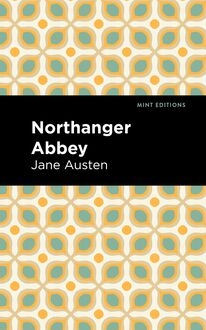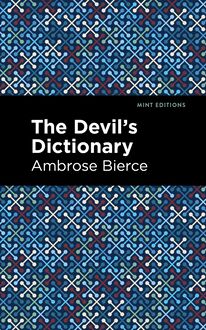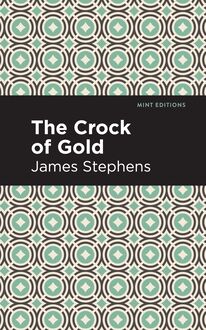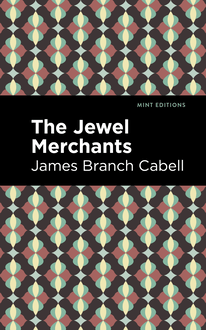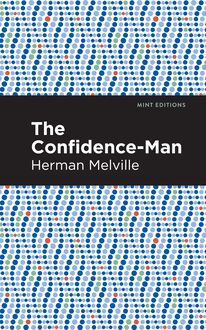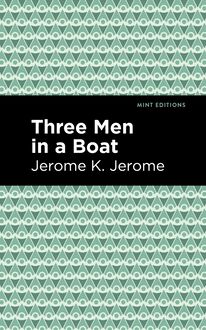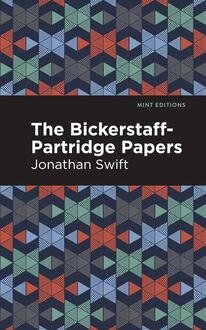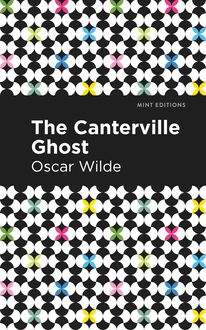-
 Univers
Univers
-
 Ebooks
Ebooks
-
 Livres audio
Livres audio
-
 Presse
Presse
-
 Podcasts
Podcasts
-
 BD
BD
-
 Documents
Documents
-
- Cours
- Révisions
- Ressources pédagogiques
- Sciences de l’éducation
- Manuels scolaires
- Langues
- Travaux de classe
- Annales de BEP
- Etudes supérieures
- Maternelle et primaire
- Fiches de lecture
- Orientation scolaire
- Méthodologie
- Corrigés de devoir
- Annales d’examens et concours
- Annales du bac
- Annales du brevet
- Rapports de stage
La lecture à portée de main
Vous pourrez modifier la taille du texte de cet ouvrage
Découvre YouScribe en t'inscrivant gratuitement
Je m'inscrisDécouvre YouScribe en t'inscrivant gratuitement
Je m'inscrisEn savoir plus
Vous pourrez modifier la taille du texte de cet ouvrage
En savoir plus

Description
Psmith (the p is silent) is a man of contrasts. He is overly confident, but smart, and prone to mischief, but resourceful enough to get himself out of trouble. Down on his luck and out of a job, Psmith meets Eve Halliday in the middle of a downpour. Immediately drawn to her beauty, Psmith decides to help Eve get out of the rain. After he borrows an umbrella from a nearby club without asking, Psmith offers it to Eve, so that she is able to finish her walk. Thankful, Eve continues to walk with Psmith. Their involvement eventually gains the attention of Eve’s new boss, a wealthy and powerful man named Lord Emsworth, who, upon meeting Psmith, mistakes him for a famous poet. Realizing that such an identity would gain him an invitation to Blandings Castle, where he could spend time with Eve, Psmith decides to not to correct Lord Emsworth. During the party at Blandings Castle, Psmith is asked to make a speech and recite a poem, though as a man well versed in malarkey, Psmith can navigate himself out of the problem. However, when he realizes that his impersonations have led him to an unintentional involvement in a jewelry heist, the night unfolds issues that he never could have predicted.
Leave it to Psmith is P.G Wodenhouse’s fourth novel featuring his beloved reoccurring character, Ronald Psmith. Though part of a series, Leave it to Psmith can be enjoyed independently. Described as a bright and genius read, the simple humor and amusing misadventures of Psmith earns the acclaim of contemporary audiences.
This edition of Leave it to Psmith is now presented in a reader-friendly font and features a fun, eye-catching cover design. With these accommodations, modern audiences are able to enjoy the classic comedy of P.G Wodenhouse with ease.
Sujets
Informations
| Publié par | Mint Editions |
| Date de parution | 12 janvier 2021 |
| Nombre de lectures | 1 |
| EAN13 | 9781513275703 |
| Langue | English |
| Poids de l'ouvrage | 1 Mo |
Informations légales : prix de location à la page 0,0500€. Cette information est donnée uniquement à titre indicatif conformément à la législation en vigueur.
Extrait
Leave it to Psmith
P.G. Wodehouse
Leave it to Psmith was first published in 1923.
This edition published by Mint Editions 2021.
ISBN 9781513270708 | E-ISBN 9781513275703
Published by Mint Editions ®
minteditionbooks.com
Publishing Director: Jennifer Newens
Design & Production: Rachel Lopez Metzger
Typesetting: Westchester Publishing Services
C ONTENTS I . D ARK P LOTTINGS AT B LANDINGS C ASTLE II . E NTER P SMITH III . E VE B ORROWS AN U MBRELLA IV . P AINFUL S CENE AT THE D RONES C LUB V . P SMITH A PPLIES FOR E MPLOYMENT VI . L ORD E MSWORTH M EETS A P OET VII . B AXTER S USPECTS VIII . C ONFIDENCES ON THE L AKE IX . P SMITH E NGAGES A V ALET X . S ENSATIONAL O CCURRENCE AT A P OETRY R EADING XI . A LMOST E NTIRELY A BOUT F LOWER-POTS XII . M ORE ON THE F LOWER-POT T HEME XIII . P SMITH R ECEIVES G UESTS XIV . P SMITH A CCEPTS E MPLOYMENT
I
D ARK P LOTTINGS AT B LANDINGS C ASTLE
A t the open window of the great library of Blandings Castle, drooping like a wet sock, as was his habit when he had nothing to prop his spine against, the Earl of Emsworth, that amiable and boneheaded peer, stood gazing out over his domain.
It was a lovely morning and the air was fragrant with gentle summer scents. Yet in his lordship’s pale blue eyes there was a look of melancholy. His brow was furrowed, his mouth peevish. And this was all the more strange in that he was normally as happy as only a fluffy-minded man with excellent health and a large income can be. A writer, describing Blandings Castle in a magazine article, had once said: “Tiny mosses have grown in the cavities of the stones, until, viewed near at hand, the place seems shaggy with vegetation.” It would not have been a bad description of the proprietor. Fifty-odd years of serene and unruffled placidity had given Lord Emsworth a curiously moss-covered look. Very few things had the power to disturb him. Even his younger son, the Hon. Freddie Threepwood, could only do it occasionally.
Yet now he was sad. And—not to make a mystery of it any longer—the reason of his sorrow was the fact that he had mislaid his glasses and without them was as blind, to use his own neat simile, as a bat. He was keenly aware of the sunshine that poured down on his gardens, and was yearning to pop out and potter among the flowers he loved. But no man, pop he never so wisely, can hope to potter with any good result if the world is a mere blur.
The door behind him opened, and Beach the butler entered, a dignified procession of one.
“Who’s that?” inquired Lord Emsworth, spinning on his axis.
“It is I, your lordship—Beach.”
“Have you found them?”
“Not yet, your lordship,” sighed the butler.
“You can’t have looked.”
“I have searched assiduously, your lordship, but without avail. Thomas and Charles also announce non-success. Stokes has not yet made his report.”
“Ah!”
“I am re-despatching Thomas and Charles to your lordship’s bedroom,” said the Master of the Hunt. “I trust that their efforts will be rewarded.”
Beach withdrew, and Lord Emsworth turned to the window again. The scene that spread itself beneath him—though he was unfortunately not able to see it—was a singularly beautiful one, for the castle, which is one of the oldest inhabited houses in England, stands upon a knoll of rising ground at the southern end of the celebrated Vale of Blandings in the county of Shropshire. Away in the blue distance wooded hills ran down to where the Severn gleamed like an unsheathed sword; while up from the river rolling park-land, mounting and dipping, surged in a green wave almost to the castle walls, breaking on the terraces in a many-coloured flurry of flowers as it reached the spot where the province of Angus McAllister, his lordship’s head gardener, began. The day being June the thirtieth, which is the very high-tide time of summer flowers, the immediate neighbourhood of the castle was ablaze with roses, pinks, pansies, carnations, hollyhocks, columbines, larkspurs, London pride, Canterbury bells, and a multitude of other choice blooms of which only Angus could have told you the names. A conscientious man was Angus; and in spite of being a good deal hampered by Lord Emsworth’s amateur assistance, he showed excellent results in his department. In his beds there was much at which to point with pride, little to view with concern.
Scarcely had Beach removed himself when Lord Emsworth was called upon to turn again. The door had opened for the second time, and a young man in a beautifully-cut suit of grey flannel was standing in the doorway. He had a long and vacant face topped by shining hair brushed back and heavily brilliantined after the prevailing mode, and he was standing on one leg. For Freddie Threepwood was seldom completely at his ease in his parent’s presence.
“Hallo, guv’nor.”
“Well, Frederick?”
It would be paltering with the truth to say that Lord Emsworth’s greeting was a warm one. It lacked the note of true affection. A few weeks before he had had to pay a matter of five hundred pounds to settle certain racing debts for his offspring; and, while this had not actually dealt an irretrievable blow at his bank account, it had undeniably tended to diminish Freddie’s charm in his eyes.
“Hear you’ve lost your glasses, guv’nor.”
“That is so.”
“Nuisance, what?”
“Undeniably.”
“Ought to have a spare pair.”
“I have broken my spare pair.”
“Tough luck! And lost the other?”
“And, as you say, lost the other.”
“Have you looked for the bally things?”
“I have.”
“Must be somewhere, I mean.”
“Quite possibly.”
“Where,” asked Freddie, warming to his work, “did you see them last?”
“Go away!” said Lord Emsworth, on whom his child’s conversation had begun to exercise an oppressive effect.
“Eh?”
“Go away!”
“Go away?”
“Yes, go away!”
“Right ho!”
The door closed. His lordship returned to the window once more.
He had been standing there some few minutes when one of those miracles occurred which happen in libraries. Without sound or warning a section of books started to move away from the parent body and, swinging out in a solid chunk into the room, showed a glimpse of a small, study-like apartment. A young man in spectacles came noiselessly through and the books returned to their place.
The contrast between Lord Emsworth and the new-comer, as they stood there, was striking, almost dramatic. Lord Emsworth was so acutely spectacle-less; Rupert Baxter, his secretary, so pronouncedly spectacled. It was his spectacles that struck you first as you saw the man. They gleamed efficiently at you. If you had a guilty conscience, they pierced you through and through; and even if your conscience was one hundred per cent. pure you could not ignore them. “Here,” you said to yourself, “is an efficient young man in spectacles.”
In describing Rupert Baxter as efficient, you did not overestimate him. He was essentially that. Technically but a salaried subordinate, he had become by degrees, owing to the limp amiability of his employer, the real master of the house. He was the Brains of Blandings, the man at the switch, the person in charge, and the pilot, so to speak, who weathered the storm. Lord Emsworth left everything to Baxter, only asking to be allowed to potter in peace; and Baxter, more than equal to the task, shouldered it without wincing.
Having got within range, Baxter coughed; and Lord Emsworth, recognising the sound, wheeled round with a faint flicker of hope. It might be that even this apparently insoluble problem of the missing pince-nez would yield before the other’s efficiency.
“Baxter, my dear fellow, I’ve lost my glasses. My glasses. I have mislaid them. I cannot think where they can have gone to. You haven’t seen them anywhere by any chance?”
“Yes, Lord Emsworth,” replied the secretary, quietly equal to the crisis. “They are hanging down your back.”
“Down my back? Why, bless my soul!” His lordship tested the statement and found it—like all Baxter’s statements—accurate. “Why, bless my soul, so they are! Do you know, Baxter, I really believe I must be growing absent-minded.” He hauled in the slack, secured the pince-nez, adjusted them beamingly. His irritability had vanished like the dew off one of his roses. “Thank you, Baxter, thank you. You are invaluable.”
And with a radiant smile Lord Emsworth made buoyantly for the door, en route for God’s air and the society of McAllister. The movement drew from Baxter another cough—a sharp, peremptory cough this time; and his lordship paused, reluctantly, like a dog whistled back from the chase. A cloud fell over the sunniness of his mood. Admirable as Baxter was in so many respects, he had a tendency to worry him at times; and something told Lord Emsworth that he was going to worry him now.
“The car will be at the door,” said Baxter with quiet firmness, “at two sharp.”
“Car? What car?”
“The car to take you to the station.”
“Station? What station?”
Rupert Baxter preserved his calm. There were times when he found his employer a little trying, but he never showed it.
“You have perhaps forgotten, Lord Emsworth, that you arranged with Lady Constance to go to London this afternoon.”
“Go to London!” gasped Lord Emsworth, appalled. “In weather like this? With a thousand things to attend to in the garden? What a perfectly preposterous notion! Why should I go to London? I hate London.”
“You arranged with Lady Constance that you would give Mr. McTodd lunch to-morrow at your club.”
“Who the devil is Mr. McTodd?”
“The well-known Canadian poet.”
“Never heard of him.”
“Lady Constance has long been a great admirer of his work. She wrote inviting him, should he ever come to England, to pay a visit to Blandings. He is now in London and is to come down to-morrow for two weeks. Lady Constance’s suggestion was that, as a compliment to Mr. McTodd’s eminence in the world of literature, you should meet him in London and bring him back here yourself.”
Lord Emsworth remembered now. He al
-
 Univers
Univers
-
 Ebooks
Ebooks
-
 Livres audio
Livres audio
-
 Presse
Presse
-
 Podcasts
Podcasts
-
 BD
BD
-
 Documents
Documents
-
Jeunesse
-
Littérature
-
Ressources professionnelles
-
Santé et bien-être
-
Savoirs
-
Education
-
Loisirs et hobbies
-
Art, musique et cinéma
-
Actualité et débat de société
-
Jeunesse
-
Littérature
-
Ressources professionnelles
-
Santé et bien-être
-
Savoirs
-
Education
-
Loisirs et hobbies
-
Art, musique et cinéma
-
Actualité et débat de société
-
Actualités
-
Lifestyle
-
Presse jeunesse
-
Presse professionnelle
-
Pratique
-
Presse sportive
-
Presse internationale
-
Culture & Médias
-
Action et Aventures
-
Science-fiction et Fantasy
-
Société
-
Jeunesse
-
Littérature
-
Ressources professionnelles
-
Santé et bien-être
-
Savoirs
-
Education
-
Loisirs et hobbies
-
Art, musique et cinéma
-
Actualité et débat de société
- Cours
- Révisions
- Ressources pédagogiques
- Sciences de l’éducation
- Manuels scolaires
- Langues
- Travaux de classe
- Annales de BEP
- Etudes supérieures
- Maternelle et primaire
- Fiches de lecture
- Orientation scolaire
- Méthodologie
- Corrigés de devoir
- Annales d’examens et concours
- Annales du bac
- Annales du brevet
- Rapports de stage

